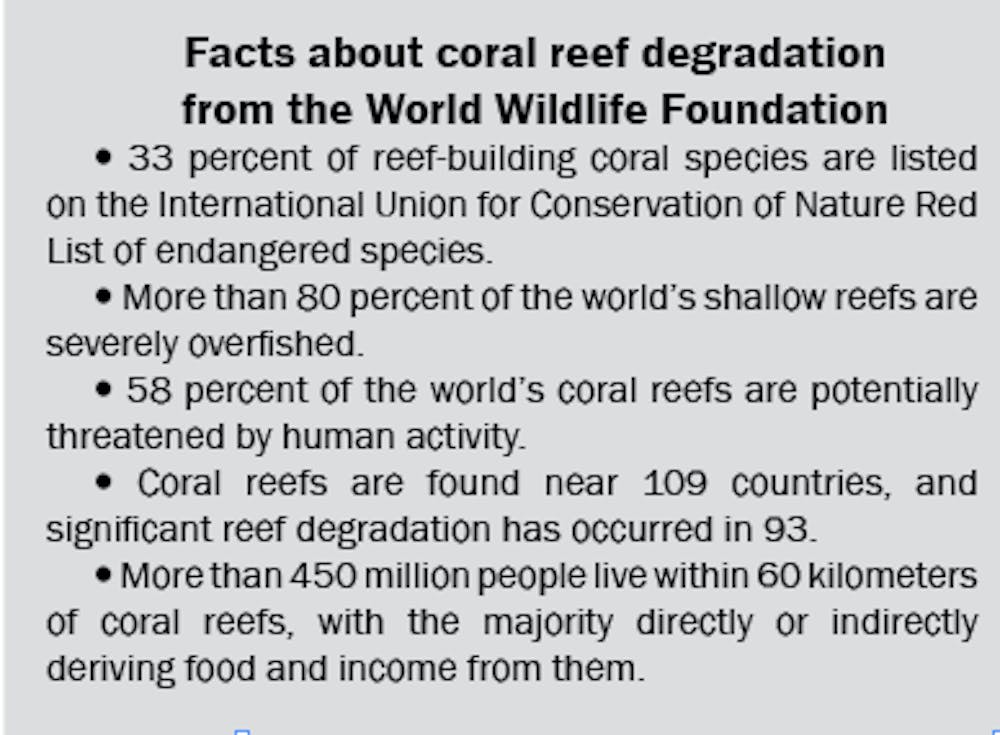While coral reefs across the world are reportedly struggling, off the warm coast of the Cayman Islands, UF researchers have witnessed colonies bounce back.
From 1999 to 2004, warm ocean temperatures resulted in bleaching and infectious disease, which reduced the living coral at Little Cayman by more than 40 percent. But now, the overall health and size of the coral has returned to its original state.
“What we showed here is that there was a warming event and they suffered, but they were able to come back,” said Chuck Jacoby, a courtesy faculty member in UF’s soil and water science department and one of the researchers involved in the study.
The warming event researchers witnessed can be attributed to climate change, Jacoby said.
In most reef areas, coral are subject to global stresses, like warming, as well as local stresses, including damage from fishing, anchoring or pollution, Jacoby said.
But Tom Frazer, a UF professor of aquatic ecology, said the reef in Little Cayman is isolated from those local stresses, giving it a unique opportunity to overcome and thrive in a warmer environment as opposed to bleaching and dying in the presence of both global and local stresses combined.
“Our findings suggest that the island’s relative isolation, limited human disturbance and relatively healthy fish populations underlie the observed resiliency,” Frazer said.
Though coral reefs only occupy less than 0.01 percent of the marine environment, according to the study’s press release, reefs house about 25 percent of the different species of marine organisms, produce about 25 percent of fish caught in developing countries and account for about 30 percent of export earnings in reef-related tourism.
The findings give an incentive to cities and towns with struggling reefs to focus on limiting local stresses and letting the reefs thrive on their own.
“Although addressing global issues is important, you can’t give up on the local ones, and you can’t give up on the reefs,” Jacoby said. “Local stresses are much more manageable than the global ones, and if you get rid of the local ones, the reefs can cope.”
A version of this story ran on page 13 on 1/6/2014 under the headline "Coral reefs can recover after damage, new UF study shows"






